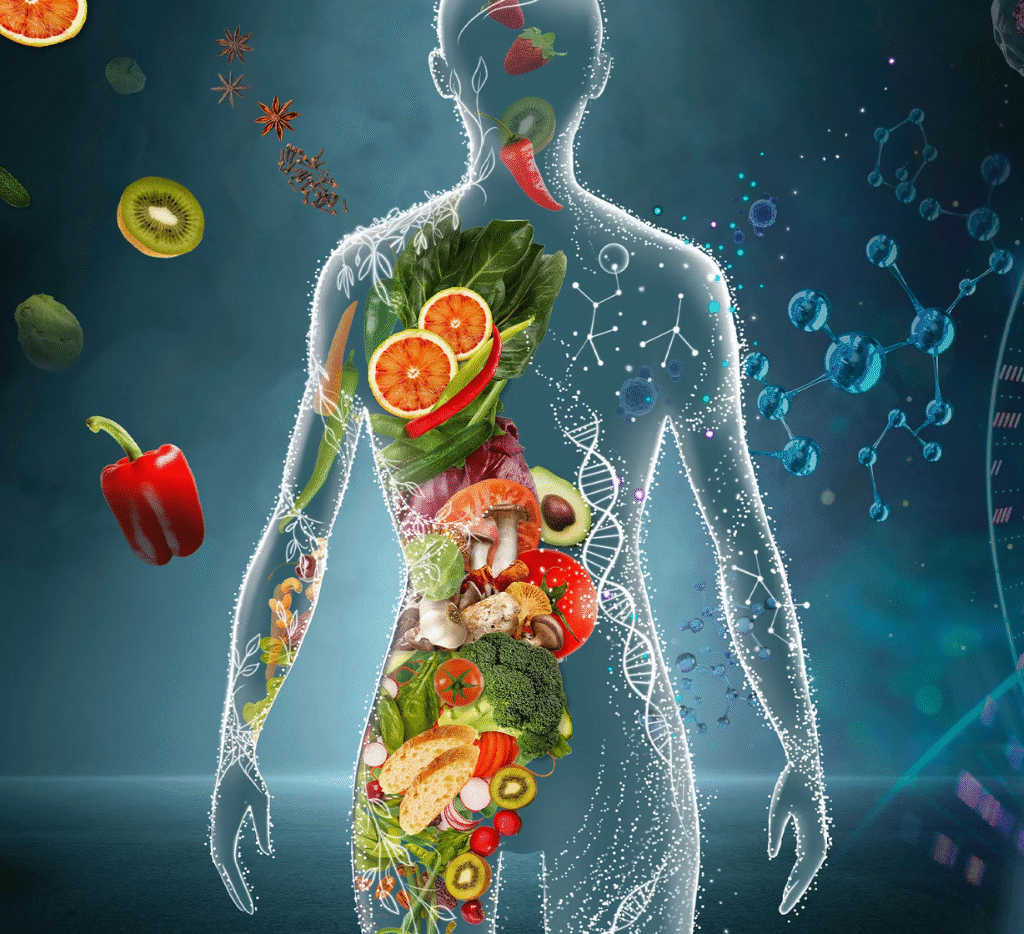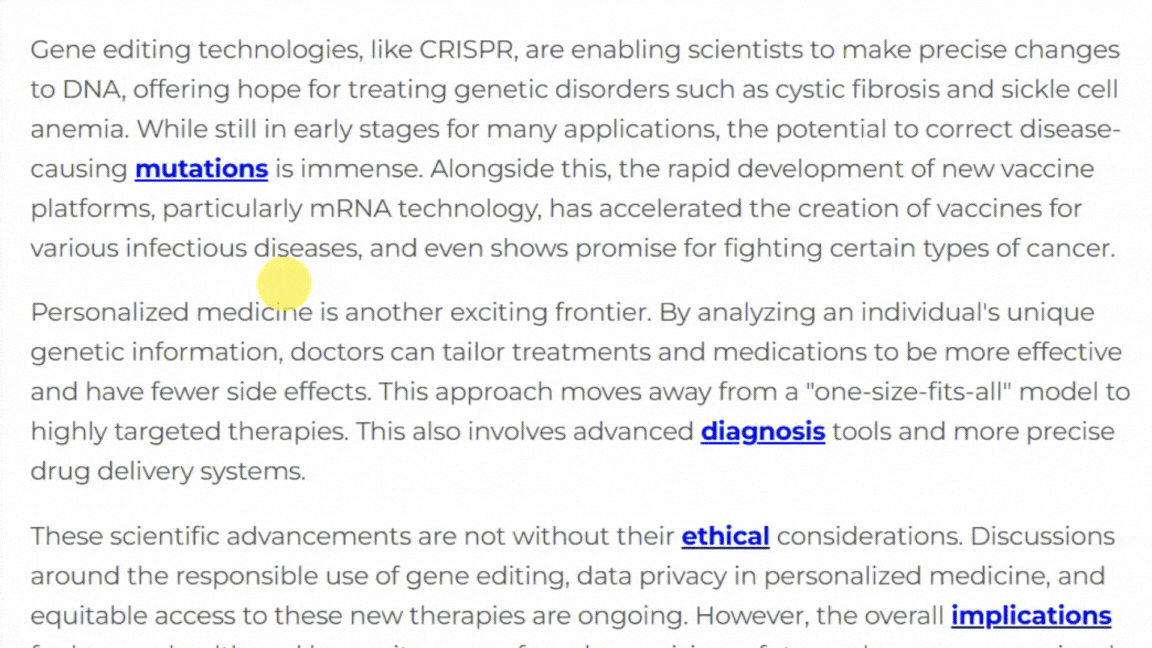Amber Talk
Enhance Your Conversation
- Login
- / Sign Up
Amber Talk
Enhance Your Conversation

Improve Your English Skills
Please enter your email to get more information on how to improve your English skills and to continue with the Article.

Nutritional Science
News Audio Player
Scroll Down For Speaking Practice
The field of nutritional science is continuously evolving, revealing new insights into how food affects our health. Modern research goes beyond basic calorie counting, focusing on complex dietary patterns and their profound impact on overall wellness. The concept of "superfoods" often captures public attention, highlighting nutrient-dense options like berries, leafy greens, and nuts that offer significant health advantages. These foods are packed with essential vitamins, minerals, and antioxidants, contributing to robust health and disease prevention.
A major area of focus is the gut microbiome, the vast community of microorganisms residing in our intestines. A balanced microbiome is critical for digestion, immunity, and even mood regulation. Consuming probiotics (beneficial live bacteria in fermented foods like yogurt and sauerkraut) and prebiotics (non-digestible fibers that feed these beneficial bacteria, found in foods like garlic and oats) is essential for fostering a healthy gut environment. This symbiotic relationship significantly influences our body's ability to absorb nutrients and defend against pathogens, underpinning overall wellness.
Diet plays a pivotal role in preventing and managing chronic diseases such as heart disease, type 2 diabetes, and certain cancers. Research increasingly links unhealthy eating habits, particularly those high in processed foods and sugar, to systemic inflammation, a key driver of many long-term health issues. Conversely, diets rich in whole, unprocessed foods can significantly reduce inflammatory markers. Maintaining optimal metabolic health through balanced nutrition helps regulate blood sugar, cholesterol levels, and blood pressure, which are all crucial indicators of long-term wellness.
The future of diet and wellness is moving towards personalized nutrition. Dietary recommendations are tailored to an individual's unique genetic makeup, lifestyle, and specific health goals. This advanced approach promises more effective and precise strategies for long-term health and disease prevention, moving away from generic advice to highly impactful, customized dietary plans for each person, ensuring nutritional guidance is as effective as possible.
Let's Talk About It!
- 1. What is the main focus of nutritional science today?
- 2. How do dietary patterns influence overall health?
- 3. Are "superfoods" truly superior, or is it marketing?
- 4. Why is a healthy gut microbiome important for health?
- 5. What is the difference between probiotics and prebiotics?
- 6. How does diet impact the risk of chronic diseases?
- 7. Can diet help reduce inflammation in the body?
- 8. What role does diet play in maintaining metabolic health?
- 9. How can personalized nutrition change eating habits?
- 10. What is one practical tip for improving daily diet?
Article Vocabulary Instructions
Click to Enlarge
